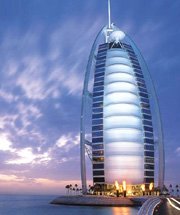
- Packages
- Destination
-
Attraction
By Category
Top Attraction

- Agents
- Car Rentals
- Hotels
Lake Rukwa, located in the Mlele District of Tanzania, is a significant and beautiful body of water situated in the western part of the country. This freshwater lake is part of the greater Lake Tanganyika basin and plays an essential role in the local ecology and economy. Known for its stunning natural scenery, Lake Rukwa is surrounded by mountains, wetlands, and various wildlife, making it an ideal destination for nature lovers, birdwatchers, and eco-tourists.
The lake is a vital resource for the nearby communities, providing water for agriculture, fishing, and daily life. It’s an undiscovered gem for those seeking tranquility away from the more crowded tourist spots in Tanzania. Whether you’re into outdoor adventures, photography, or simply soaking up the serene atmosphere, Lake Rukwa offers an unspoiled escape into nature.
To reach Lake Rukwa from Muscat, Oman, the most convenient option is to fly to Dar es Salaam, Tanzania's largest city. There are no direct flights from Muscat to Dar es Salaam, so you will likely need to make a stopover in cities such as Dubai or Addis Ababa before arriving in Dar es Salaam. From Dar es Salaam, you can catch a domestic flight to Sumbawanga, the nearest major town to Lake Rukwa. Alternatively, you can travel by bus, though this journey would take a much longer time.
Once in Sumbawanga, the journey to Lake Rukwa itself can be made by local transportation, including buses or taxis. Depending on the specific location of your accommodation around the lake, you may need to arrange private transport, as the area is less accessible through public transportation.
Lake Rukwa experiences a tropical climate with distinct wet and dry seasons. The wet season typically lasts from November to April, with heavy rains making travel conditions more difficult. During the wet season, the surrounding areas can become muddy and less accessible, and the lake’s water levels may rise.
The best time to visit Lake Rukwa is during the dry season, from May to October. This period offers warm but comfortable weather, with less humidity and clearer skies. The lake is more accessible, and outdoor activities such as fishing, hiking, and wildlife viewing are at their best. The dry months also offer the opportunity to see a variety of migratory birds around the lake, making it a great time for birdwatching.
Lake Rukwa is famous for its remarkable beauty and unique location. The lake is set amidst the backdrop of the Rukwa Rift Valley, surrounded by dramatic mountains and rolling hills, offering breathtaking views. The area is known for its abundant birdlife, and the lake serves as a critical habitat for numerous species, making it a hotspot for birdwatchers and wildlife enthusiasts.
The lake is also significant for the local community. The surrounding towns rely on the lake for water, fishing, and farming. Its shores are dotted with fishing villages, where traditional fishing practices are still used today. For eco-tourists, the lake offers an off-the-beaten-path experience, away from the more commercialized tourism found in other parts of Tanzania.
Moreover, Lake Rukwa's ecosystem is a vital part of the broader Lake Tanganyika Basin, one of the oldest and deepest freshwater lakes in the world. This makes Lake Rukwa a fascinating destination for those interested in geology, ecology, and conservation.
While Lake Rukwa does not have formal tourist entry gates or fees, it is important to plan your visit carefully due to the lake's remote location. Most visitors will need to stay in the nearby town of Sumbawanga or other small villages along the lake's shoreline. Accommodations vary from basic guesthouses to small lodges, which cater to local and international visitors.
It is recommended to book accommodations and transport in advance, especially during the dry season when the area sees a modest influx of tourists. Traveling within the region can be challenging due to unpaved roads, so it is a good idea to hire a local guide or vehicle with 4x4 capabilities to reach the lake and explore the surrounding areas.
If you are interested in fishing or wildlife activities, local guides are available to enhance your experience. They can help you navigate the area, point out wildlife, and provide cultural insights into the local communities.
The history of Lake Rukwa is largely intertwined with the natural environment and the development of surrounding communities. The lake is part of the Rukwa Rift Valley, a region that has been shaped by geological activity over millions of years. The valley itself is a major feature in East Africa’s Great Rift Valley, and Lake Rukwa sits in a depression that formed as a result of tectonic movements.
In terms of architecture, Lake Rukwa is not known for large or monumental structures, as the area is more rural and untouched by heavy development. The region is home to small, traditional villages, where simple homes are constructed from local materials such as wood, thatch, and mud. The local architecture reflects the community’s connection with nature, with homes often built in harmony with the surrounding environment.
While the area is less developed, it offers an authentic experience of Tanzanian rural life, with people living in close connection with the land and the lake. The natural environment is the main attraction, and the area's rustic charm makes it feel like an untouched paradise.
Lake Rukwa offers a unique and serene experience in one of Tanzania’s lesser-known but stunning natural landscapes. Its breathtaking views, abundant wildlife, and tranquil waters make it a perfect destination for eco-tourism and adventure. Whether you’re a nature enthusiast, a photographer, or just seeking a peaceful retreat, Lake Rukwa provides an opportunity to connect with the natural world in its purest form. With careful planning and respect for the local environment, a visit to Lake Rukwa will be a memorable experience that showcases the unspoiled beauty of Tanzania.